If you’re considering solar for your home, the first decision is what type of solar system to use. There are two main solar panel types: ground mount vs. roof mount solar. Both have pros and cons, so which is right for you? Here’s a breakdown of the basics to help you decide.
What are Ground Mounted Solar Panels?
Ground-mounted solar panels are simply panels you install on the ground rather than on the roof of your home.
You can mount these solar panel systems on the ground using solar racking or frames to elevate the solar panel above the ground.
This approach allows the panel to receive direct sunlight and makes it easier to clean and maintain.
If you want to make the job easier, you can opt for pole mounts. Pole mounts will help you move the panels in any direction.
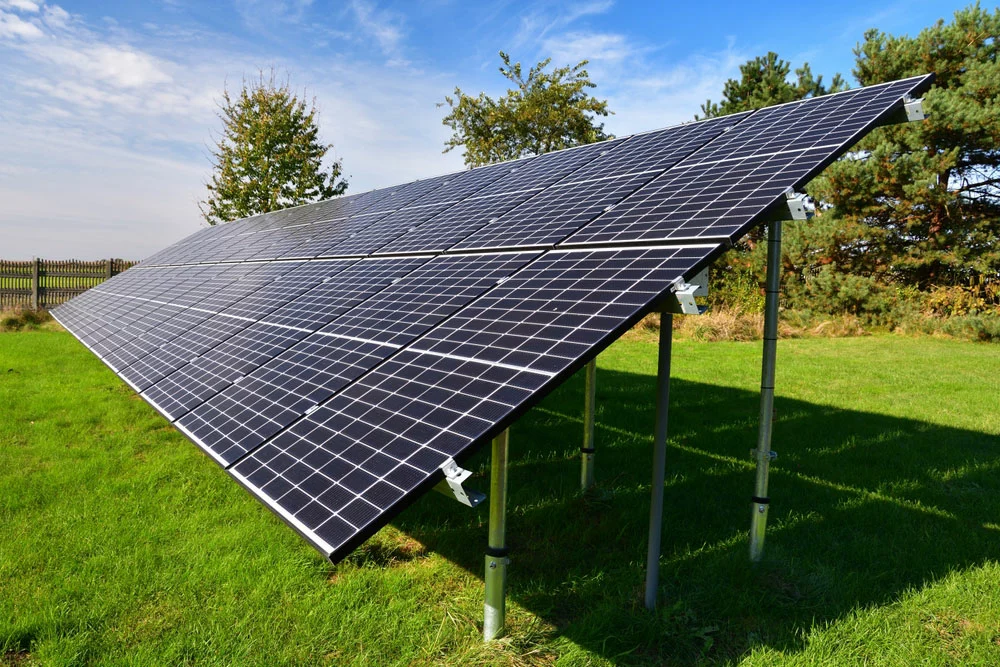
A set of photovoltaic panels mounted on the ground
What are Roof Mounted Solar Panels?
Roof-mounted solar panels are a type of solar panel you mount on the roof of a building.
Most solar panel installation companies will use a mounting system to attach the solar panels to your roof.
This mounting system will vary depending on the type of roof you have. For example, if you have a shingled roof, you will mount the solar array using a special bracket under the shingles.
If you have a flat roof, you can install solar panels using a unique stand placed on top of the roof.
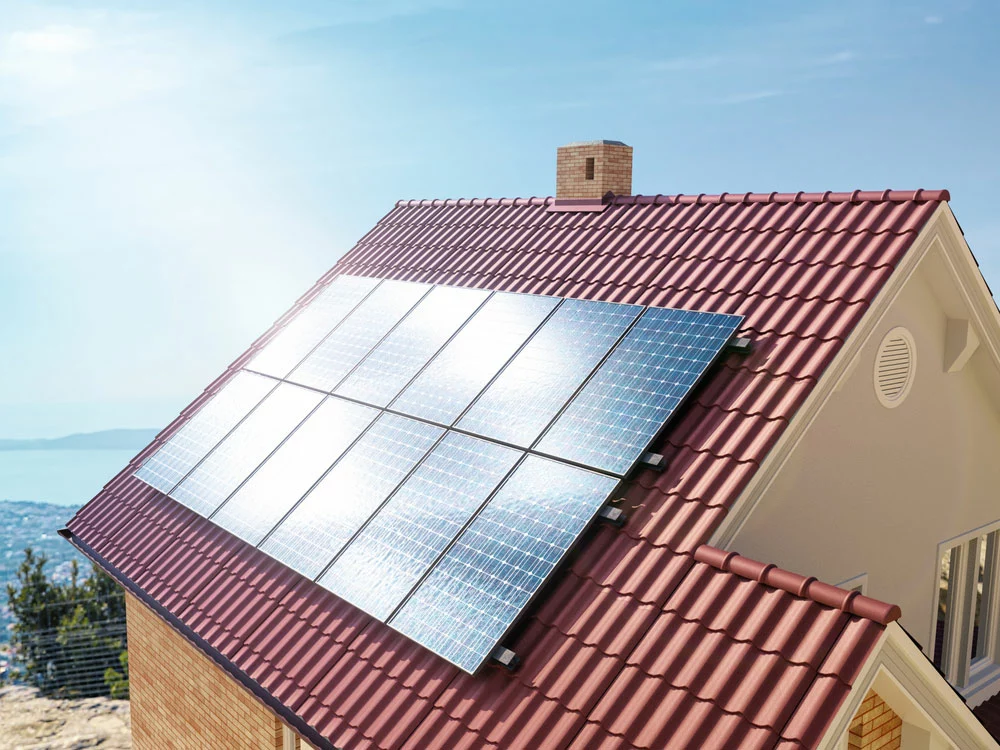
Solar panels mounted on the family house roof
Ground Mount vs. Roof Mount Solar: Pros
Advantages of Ground Mount Solar
1. Various installation options
You can have your ground-mounted system installed in several different ways. You can have them installed in an open field, or you can have them installed next to your home.
The also have them installed in a way that allows you to use them as part of your landscaping.
2. No shading issues
One of the significant advantages of ground-mounted solar panel systems is that they are not susceptible to shading from trees or other buildings. You can position the panels so that they are in direct sunlight at all times of the day.
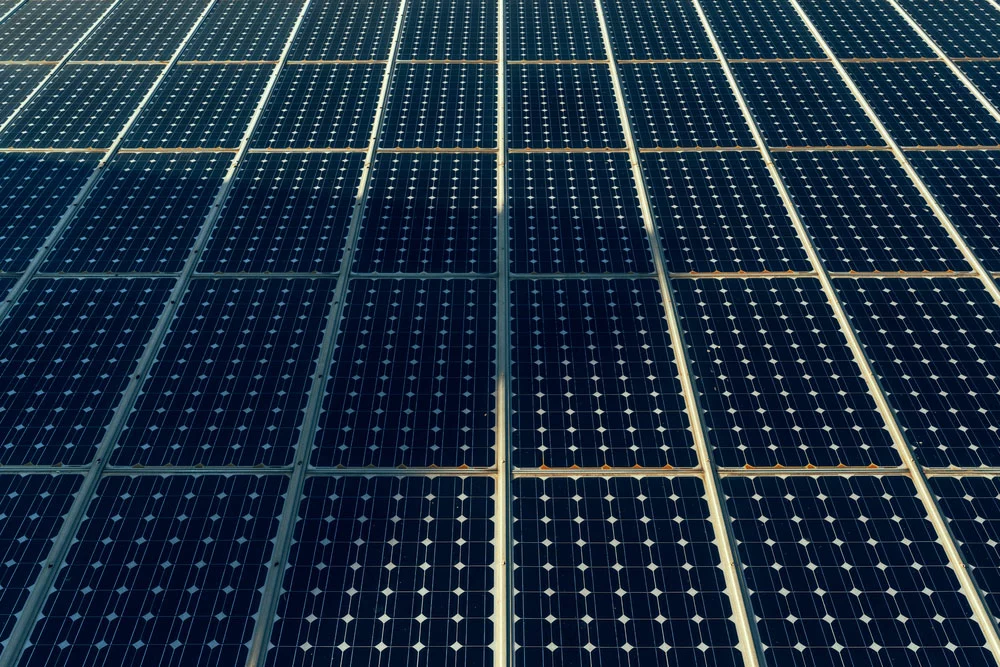
Solar panels surface with shadow over
3. Adjust the solar panel angels
With ground-mounted panels, you can adjust the angle of the panels to optimize energy production. You can do this by tilting the panels towards the south or whatever is best for you.
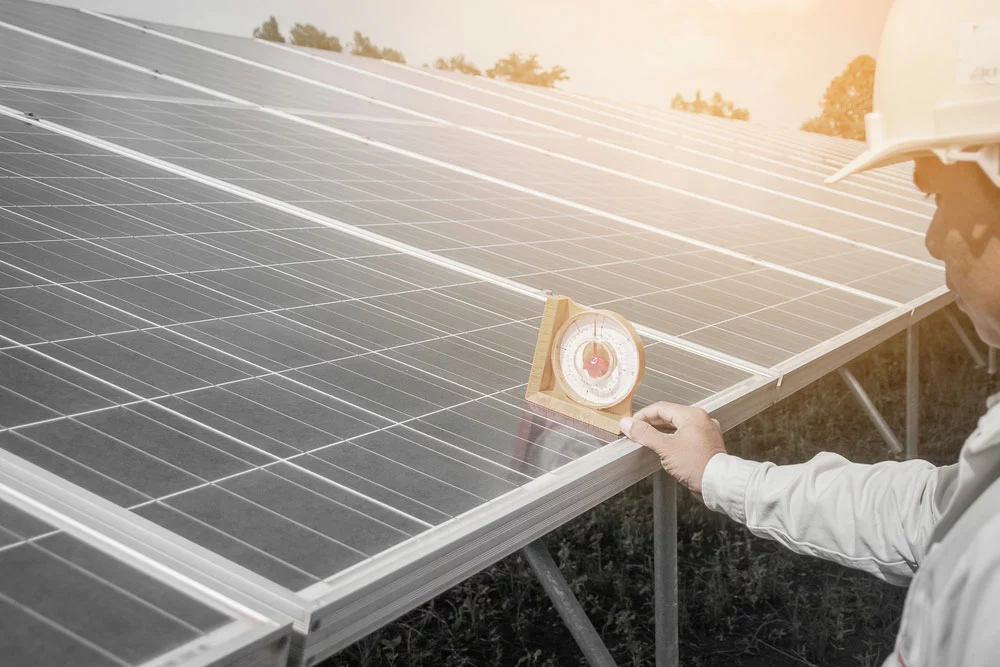
Checking angle structure solar panel
4. Higher energy production
As we just mentioned, you can adjust the optimal angle of ground-mounted solar panels to get the maximum energy.
But even if you don’t do this, ground-mounted arrays will still produce more energy per square foot than rooftop solar panels.
After all, they are not shaded by trees or buildings and have a more extended period of direct sunlight each day.
5. Easy to maintain and repair
It is common sense that ground-mounted solar panels are much easier to maintain and repair than rooftop solar panels. You can walk up to the panels, clean them, or make necessary repairs.
With roof-mounted solar systems, you will need to hire a professional to come out and do this for you.
Advantages of Roof-Mount Solar
1. Less expensive
Rooftop solar panels are less expensive to install than ground-mounted solar panels.
You don’t need to buy a particular mounting system, which can add to the installation cost of ground-mounted solar panels. What you do need, however, is a way to secure the panels to your roof.
2. Utilize unused space
You probably have a lot of unused roof space if you have a large roof, and this is the perfect place for rooftop installation. Not only will you be utilizing this space, but you will also be generating electricity.

The dark-colored roof
3. Doesn’t need additional land
With ground-mounted solar panels, you need to have a piece of land that is large enough to accommodate the panels, and this can be expensive, especially if you live in an urban area.
However, you don’t need any additional land with a roof-mounted array. You just install it on your roof!

Beautiful landscape with a lone tree
4. Safer against theft
When you mount panels on the roof, they are out of reach and, therefore, more challenging to steal.
Ground Mount vs. Roof Mount Solar: Cons
Disadvantages of Ground Mount Solar
1. More expensive
The most significant disadvantage of ground-mounted solar systems is that they are more expensive to install than roof-mounted panels.
However, this upfront cost is offset by the fact that they have more power output.
2. An easy target for vandals
If you live in an area prone to vandalism, you may want to think twice about installing a ground-mounted solar array.
In such areas, your solar array is an easy target for vandals, which can easily damage the panels.
3. It takes up valuable land space
Ground-mounted panels take up valuable land space that you could use for other purposes, such as gardening or landscaping.
So, if you have a small piece of land, it may not be the best option for you as it may make moving harder.
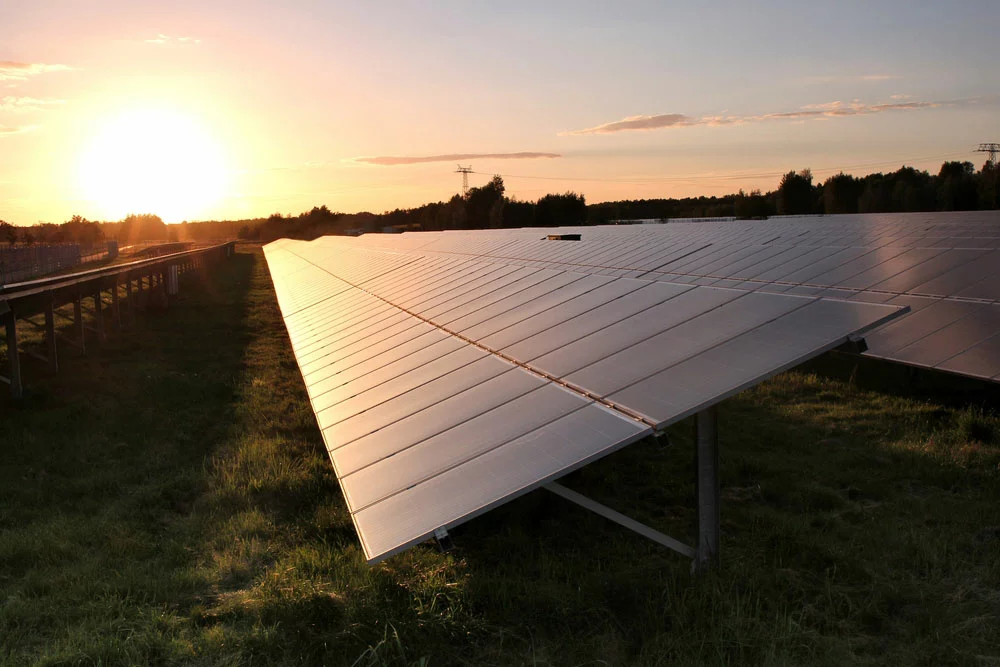
The photovoltaic power station at sunset
4. Higher chances of accidents
There is also a higher chance of accidents with ground-mounted panels; people can trip over them or run into them when they are not looking.
5. Rocks or other particles may damage them
Let’s face it; the ground is not always clean. There may be damage from rocks, twigs, or other particles.
Therefore, you must be careful when choosing the location of your ground-mounted panels.
Disadvantages of Roof-Mount Solar
1. They are heavy
Solar panels are quite heavy and can add weight to your roof, especially if you have many.
This extra weight can put a strain on your roof and may cause it to collapse.
If you have shingles, this will be even worse. When you mount the panels, their weight can cause the shingles to crack and break.
In addition, the sun can also cause the shingles to deteriorate, which will shorten their lifespan
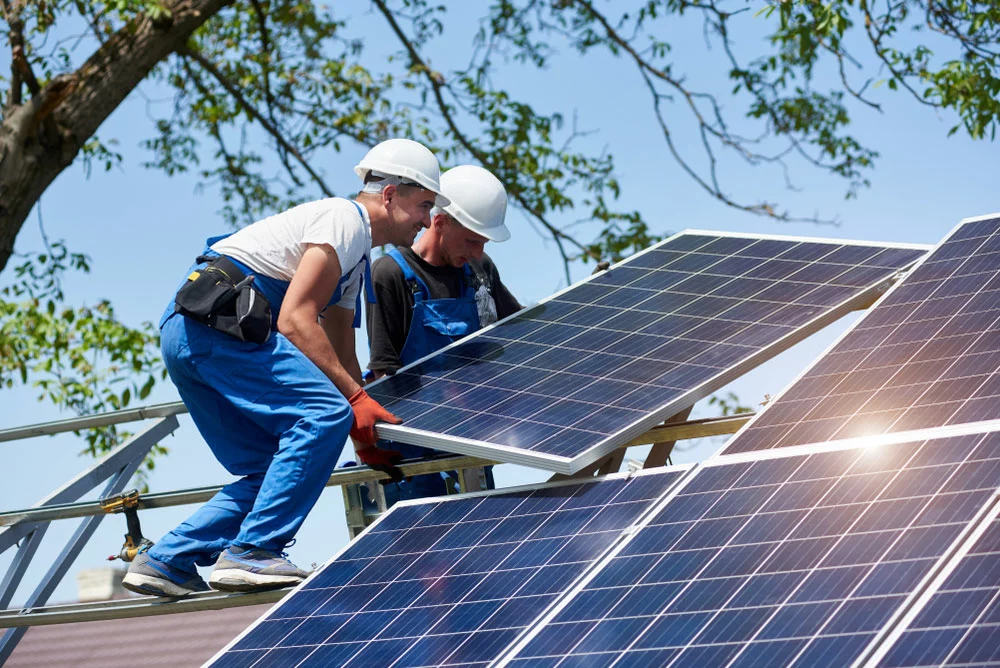
Two young technicians installing heavy solar photo voltaic panel
2. May need reinforcement
Depending on your roof type, you may need to reinforce it before you mount the panels.
So, before the solar installation process, you may need to change or add supports to your roof, which can be costly.
3. Not appealing
It is just a matter of opinion, but some people believe that roof-mounted systems are not as appealing as ground-mount arrays. People who think this way often say that they are an eyesore.
4. Dangerous to install
Roof-mounted panels can be dangerous to install. The solar installer will work on your roof, which can be slippery and dangerous.
In addition, the panels are heavy and can be challenging to handle.
Roof Mount vs. Ground Mount: Which is better?
Now that you know the pros and cons of ground and roof-mounted systems, you may wonder which one you should choose.
The answer to this question depends on a few factors, such as your budget, the type of roof you have, the amount of land you have, and your personal preference.
A ground-mount system is better if you have a good budget and place, as they are more efficient.
However, roof-mounted panels may be the better option if you have a limited budget and space.
It just comes down to what works best for you and your situation. So, consider all the factors and make the best decision.
